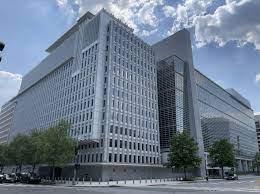—Stricter controls for extractive industry use of IEDs underway
Oscarline Onwuemenyi
19 August, 2011, Sweetcrude, ABUJA – The Federal Government has called for enhanced checks and monitoring of the importation and use of Improvised Explosive Devices (IEDs) and civil explosives mainly used by operators in the mining and minerals sector as well as by construction companies, in the wake of acts of terrorism by some groups in the country that has led to loss of lives and property.
It has therefore harped on the need to review moribund laws guiding the use and application of explosives, as well as strengthening regulations on the importation of such devices by companies into the country.
The Minister of Mines and Steel Development, Arc. Musa Mohammed Sada, who was speaking in a keynote address at a Stakeholders’ Forum on Commercial (Civil) Explosives, in Abuja, noted that the country faced serious challenges in the importation, use and application of the IEDs, and urgent solutions were needed so as not to impinge negatively on the nation’s extractive industries.
He explained that commercial or civil explosives are explosives placed under the control of the Chief
Inspector of Mines (now Director of Mines Inspectorate) in the Explosives Act of 1964 and Regulations of 1967, and they are used for quarrying, mining, seismic exploration and oil well completion purposes, operations which are key to the nation’s economy.
He noted that the present administration was “desirous of diversifying the nation’s economy through the development and exploitation of solid minerals.”
He added that, “In ensuring the realization of this objective, everything possible must be done to ensure that commercial explosives which are indispensible tools for the exploitation of minerals do not constitute any risk to national security.”
Sada noted that in view of the apprehensive security reports on illicit transactions and proliferation of commercial explosives, he had authorized series of control measures in collaboration with relevant security agencies.
According o the Minister, “Some of the security measures include that dealers and importers and manufacturers of civil explosives be screened and issued security clearance every three years, by the Department of State Services (SSS) before issuance of permits by the Ministry.
“The Inspector General of Police has been requested to deploy armed policemen to all explosives storage facilities nationwide, in order to strengthen the enforcement of the Explosives Act of 1964 and the Explosives Regulations of 1967.”
He added that following the outcome of the report of the Joint Intelligence Board of 2006, and subsequent approval granted by the Federal Executive Council, End-User Certificates would be issued to explosive dealers based on the recommendation of the Ministry to the Office of the National Security Adviser in order to control explosives importation in the country.
Also, joint inspections of all explosives storage facilities by officials of the Ministry and the Department of State Services would be carried out on an annual basis.
Furthermore, he said, “In order to prevent diversion, all explosives on transit must be accompanied by armed policemen from the Anti-Bomb Unit. Also, to ensure accountability, during blasting exercise, all blasting operations in quarries, mines and construction sites are to be supervised by officers of the Ministry, the police and the SSS.
Sada noted that the Federal government was committed to the opening up of the solid mineral sector of the economy, adding that civil explosives are crucial for the realization of the objective.
According to him, “The current utilization of explosives would double when the nation’s mineral deposits are fully developed and exploited. The nation’s large reserves of coal (397 million tonnes of proven reserve and 1,437 million tonnes of estimated reserve, and bitumen (1.1 billion barrels of oil equivalent of proven reserve and estimated resource of 43 billion barrels of oil equivalent) would provide immediate feedstock for energy and power.”
The Minister pointed out that he country also has over 3 billion tonnes of proven and estimated reserves of Iron Ore deposits as well as huge reserves of limestone, dolomite, refractory clays to support local production of steel for consumption and export, which are important in view of the nation’s transportation infrastructural requirement and the quest for industrialization.




